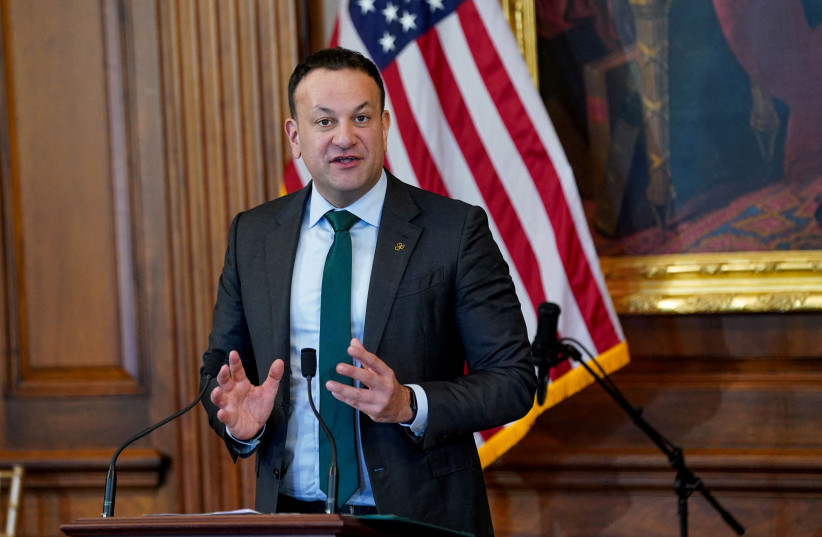Leo Varadkar said on Wednesday he would step down as Ireland's prime minister and the leader of the governing Fine Gael party in a surprise move for "personal and political" reasons.
Varadkar's departure as head of the three-party coalition does not automatically trigger a general election.
He said he had asked for a new leader of the party to be elected ahead of Fine Gael's annual conference on April 6, following which parliament would vote on that person becoming prime minister after the Easter break.
Varadkar gives his reasons for stepping down
"My reasons for stepping down are both personal and political," Varadkar, 45, told a hastily arranged news conference outside government buildings in Dublin.
"But after careful consideration, and some soul searching, I believe that a new taoiseach (prime minister) and a new leader will be better placed than me to achieve that (the coalition government's re-election)."
Sounding emotional as he made the announcement, he said was quitting as leader of Fine Gael and would resign as prime minister as soon as his successor took up the post.

The main opposition Sinn Fein party, the former political wing of the Irish Republican Army, has held a wide lead over Fine Gael and their main coalition partner, Fianna Fail, in all opinion polls for the last two years.
The next election must be called by early 2025. Polls suggest the current coalition also stands a chance of being re-elected.
The leaders of Varadkar's coalition partners said they were surprised when he let them know of his plans at a regular weekly meeting on Tuesday. Green Party leader Eamon Ryan said his party would work with whoever replaces Varadkar.
Contenders to succeed Varadkar as Fine Gael leader include Higher Education Minister Simon Harris, who was health minister during the COVID-19 pandemic, Enterprise Minister Simon Coveney, a former deputy prime minister, Public Expenditure Minister Paschal Donohoe, and Justice Minister Helen McEntee.
As recently as last weekend, Varadkar was in Washington, where he met US President Joe Biden for St Patrick's Day celebrations and talks on subjects including the Israel-Hamas conflict and the Belfast/Good Friday Agreement.
The right time to step down
Varadkar said it was the right time for him to step down and that there was no "real reason" behind his decision.
"I have nothing else lined up. I have nothing in mind. I have no definite personal or political plans," he said.
In 2017, Varadkar became the first gay prime minister of the once-staunchly Catholic country and the youngest person to hold the office.
He returned to the premiership in 2022 under a rotation arrangement struck between Fine Gael and Fianna Fail, the two largest parties in a three-party coalition with the smaller Green Party.
Varadkar's government has overseen a sharp economic recovery from the COVID-19 pandemic but has struggled to tackle a decade-long housing crisis and, more recently, the pressure on services from record numbers of asylum seekers and Ukrainian refugees.
He also suffered an embarrassing referendum defeat this month when a large majority of voters rejected proposals to replace constitutional references to a mother's "duties in the home," though other main parties, including Sinn Fein, also supported the government's proposal.
